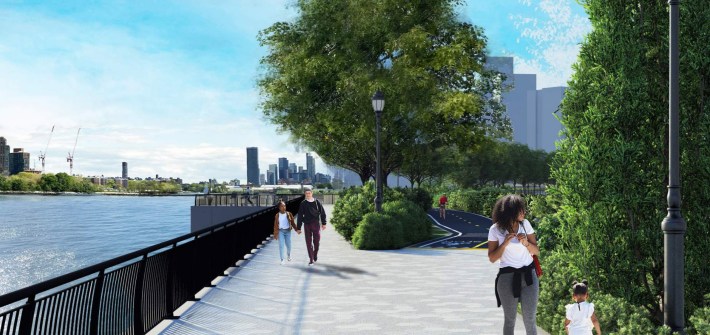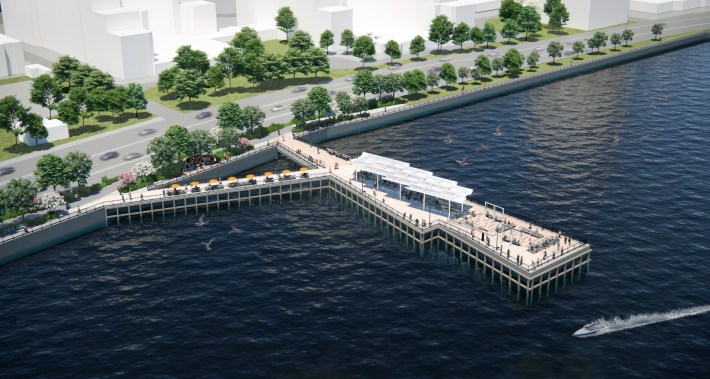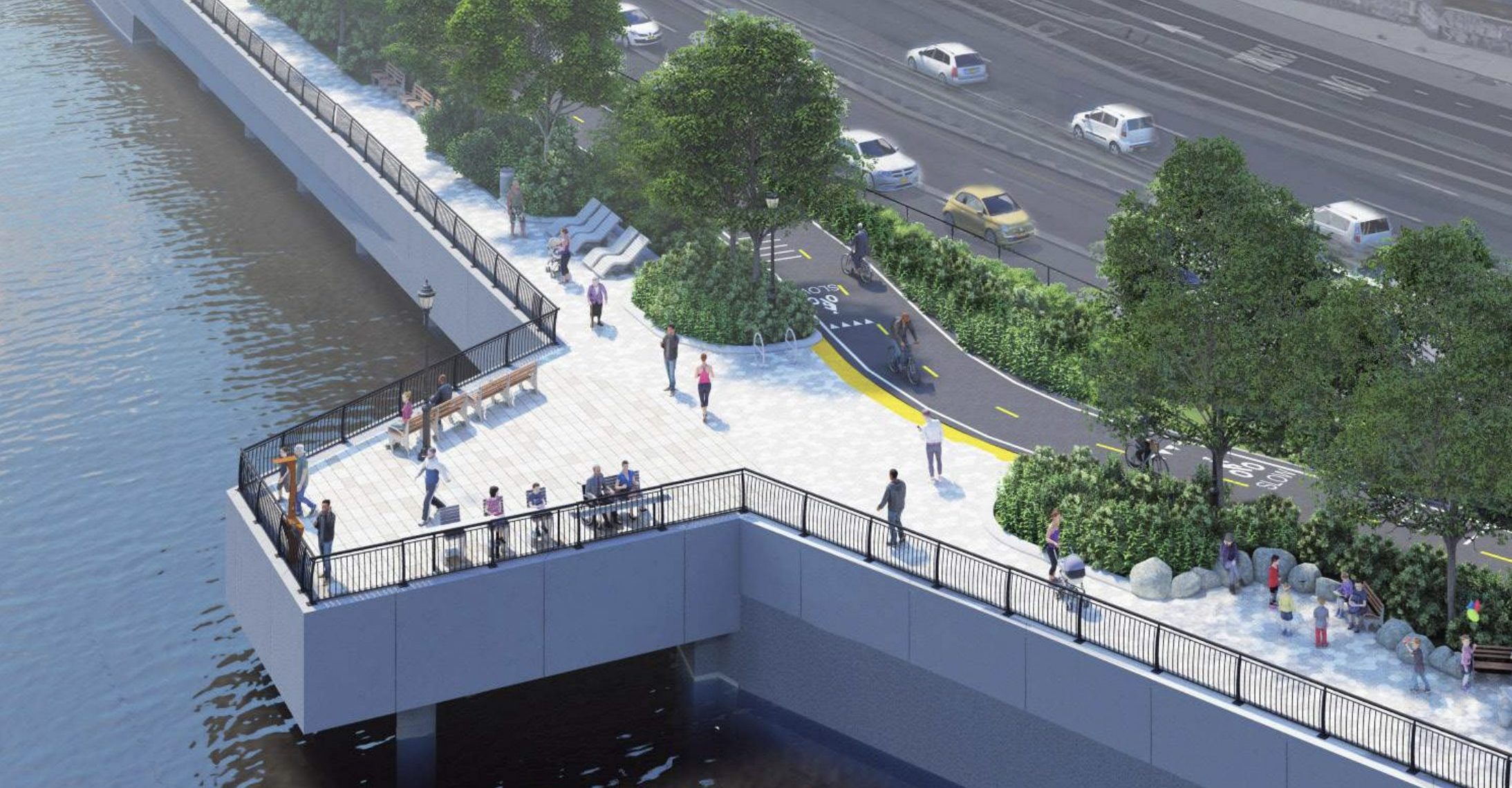The city will reconstruct 20 blocks of waterfront bike and pedestrian paths in East Harlem that have been decaying for years, rebuilding the esplanade along with a new pier between the FDR Drive and the Harlem River.
The uptown project [PDF] includes a new promenade for the deteriorating Bobby Wagner Walk — between E. 94th and E. 107th Streets, and between E. 117th and E. 124th Streets — and a replacement for the currently closed-off pier at 107th Street, with construction starting next year, according to city officials.
The northern Manhattan paths were among six city greenways that Streetsblog exposed for horrible conditions last year. Today the paths are littered with fenced-off sinkholes and completely barricaded north of 114th Street to 117th Street. Local advocates welcomed the city's plans to finally spruce up the corridor.
"It’s just going to be life-changing," Jean Kim, executive director of Friends of the East River Esplanade, told Streetsblog. "It’s like a whole health club that’s there for free for New Yorkers, but because of the [lack of] access and because it’s so neglected, people haven’t been able to enjoy it... It’s been forlorn and neglected."
The group has been advocating to improve the waterfront in the area for a decade, urging the city to provide more room for recreation in the open-space-starved neighborhood.

The $294 million overhaul — funded in large part by former Mayor Bill de Blasio three years ago — will launch construction in mid-2025 and last about 30 months into 2027, according to the quasi-public Economic Development Corporation, which is managing the project for the Parks Department.
The new paths will have separate space for cyclists and pedestrians where there’s enough room, and shared space where the path narrows. Officials also plan to raise the esplanade two to three feet to accommodate sea-level rise.

EDC will rebuild the Depression-era 107th Street Pier into a shiny new forked jetty, along with two smaller outcroppings from the paths at 101st and 119th Streets, according to the plan.
The 1931 dock once catered to the industrial businesses along First Avenue, including warehouses, garages, auto shops, poultry concerns, marble yards, and small factories, according to Parks. The city sealed it off to the public in 2018 because its disrepair rendered the structure unsafe.
EDC will demolish the pier and build a new one with two access points creating a triangular pool, along with tables and chairs and a shaded area.
The seating by the pier will feature an artwork titled “Water Table” by area architect and artist Jerome Haferd, who said the piece was inspired by the Harlem Creek, which used to empty into the river there before it was built over.

Wider sections also include an outdoor fitness area at 104th Street and garden at the northern end at the RFK Bridge. That will connect to another greenway project extending north to Inwood in phases, which the city is set to break ground on in June, officials told the civic panel.
Separately, the Parks Department plans to reconstruct the closed-off section of greenway between 114th and 117th Streets later this summer — but a seven block stretch down to 107th Street currently doesn’t have city funding for repairs, agency officials told Community Board 11 at its April 4 Environment, Open Space & Parks Committee meeting.
The civic panel lamented that the city didn't include any bathrooms in the pier's design — the next closest is at a playground at E. 96th Street. Officials said at the meeting that they're trying to get federal funding for restrooms at Playground 103 and Thomas Jefferson Park.
De Blasio in 2021 announced the city would invest $723 million to close the remaining gaps of the 32.5-mile loop around Manhattan, which includes missing segments in Midtown, along the Harlem River, Inwood, and the Lower East Side.
The city cut the ribbon on a much-anticipated, $217-million, scenic portion between E. 61st and E. 53rd streets in December, but other sections are still years away, such as a protected bike lane slated to run beneath elevated subway tracks in Inwood by 2027.
There are, however, numerous cases where existing greenways are in poor shape with delayed plans to fix them back into usable shape.
A small but vital bike and pedestrian bridge over Amtrak tracks on the Hudson River side of Washington Heights has been rotting away with delays to its repairs going on 15 years, and a path on the shoulder of the Henry Hudson Parkway keeps caving in.
Citywide greenway advocates said it was just as important to fund maintenance of existing paths too.
"It's encouraging to see some of them finally get this kind of attention. The next step will be getting to the rest, and for NYC Parks to get the financial and staffing resources to perform more frequent, proactive upkeep so that greenway conditions don't get this bad to begin with," said Brian Hedden of Brooklyn Greenway Initiative, which coordinates the NYC Greenways Coalition.






